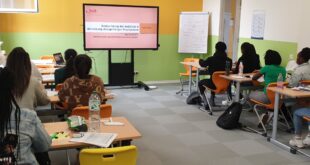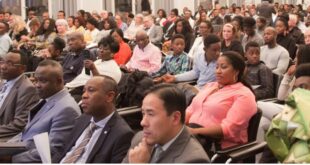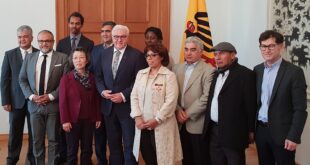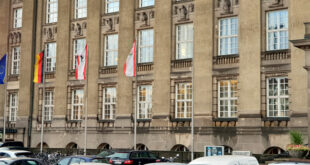The integration of refugees in Germany has been more successful than expected, according to the head of the country’s employers’ association. “Of more than a million people who have come to Germany especially since 2015, up to 400,000 will soon have a training position or a job,” said Ingo Kramer, the President of the Confederation of German Employers (Bundesvereinigung der Deutschen Arbeitgeber), in an interview with the daily newspaper Augsburger Allgemeine.
Most young migrants could understand German so well after one year’s lessonsthat they could participate in vocational training.
German Chancellor Angela Merkel (CDU) was therefore right in her optimistic prognosis “We can do it”, which she expressed at the height of the migration crisis. According to information provided by Kramer, the vast majority of the employed refugees work in socially-insured jobs and are thus integrated. “Many migrants have become a pillar of the German economy,” he said.
“We must not be afraid of immigration, but must see people who come to us and work here as an enrichment,” Kramer demanded. Most medium-sized companies are still looking for workers and looking forward to the planned law on skilled labour immigration being proposed by the governing coalition, Kramer said.
The German Federal Ministry of Economics and Technology announced last September that there were more than 31,000 young refugees in training.
According to figures of the Federal Employment Agency, there has also been an increase in the interest of young refugees in training. As of 30 September 2016, there were approximately 10,250 apprenticeship training applicants with a refugee background, and one year later their number increased to 26,428. A good third of them were successful in finding an apprenticeship.
Sola Jolaoso
 THE AFRICAN COURIER. Reporting Africa and its Diaspora! The African Courier is an international magazine published in Germany to report on Africa and the Diaspora African experience. The first issue of the bimonthly magazine appeared on the newsstands on 15 February 1998. The African Courier is a communication forum for European-African political, economic and cultural exchanges, and a voice for Africa in Europe.
THE AFRICAN COURIER. Reporting Africa and its Diaspora! The African Courier is an international magazine published in Germany to report on Africa and the Diaspora African experience. The first issue of the bimonthly magazine appeared on the newsstands on 15 February 1998. The African Courier is a communication forum for European-African political, economic and cultural exchanges, and a voice for Africa in Europe.



































